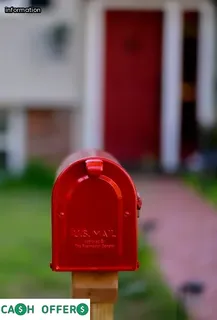When it comes to selling a home in Iowa, understanding the state's disclosure requirements is essential. Buyers have the right to know about any material defects that may exist prior to signing a purchase agreement for the property.
Current Iowa law requires sellers to disclose any known issues or defects with the property and provides buyers with the right to inspect before closing. This includes information on structural problems, water damage, and pest infestations.
As a seller, it’s important to be aware of all of these potential issues and be ready to answer questions from prospective buyers. Additionally, if a seller has knowledge of any other past or present problems related to the structure or grounds of their home, they must disclose this information as well.
Finally, it’s important for sellers to understand that even after all disclosures are made, buyers may still have recourse against them should any material damages be discovered after closing on the property.

Under Iowa law, sellers are legally obligated to disclose any known material defects with their home. Material defects are physical issues that could affect the value of a home or pose a health and safety risk to the occupants.
Examples of such defects include foundation cracks, water damage, mold growth, lead paint, asbestos contamination, infestations of pests or rodents, malfunctioning electrical systems or plumbing problems. Disclosure requirements also extend to any structural issues such as roof repairs or cracked walls.
In addition to physical defects, sellers must also disclose any information about environmental hazards that may be present in the home such as radon gas levels or flooding potential from nearby rivers and streams. Understanding Iowa's disclosure requirements is an essential step for anyone looking to successfully sell their home in the state.
Failing to disclose issues and defects in the home you are selling can have serious consequences. Depending on the state, a seller may be held liable for damages related to repairs or replacements required due to undisclosed issues or defects.
In Iowa, this means that if a buyer discovers an issue or defect that was not disclosed, they may be able to recover costs associated with repairing or replacing the item that was not disclosed. In addition, sellers who fail to disclose known issues and defects may be subject to civil penalties such as fines and punitive damages.
As a seller in Iowa, it is important to understand all disclosure requirements in order to avoid these legal repercussions.

When selling a home in Iowa, the disclosure statement is one of the most important documents to understand. It outlines all potential known defects and material facts about the property that must be disclosed to potential buyers.
A free e-book can help sellers get the most out of their disclosure statement by explaining important information needed to fill it out as accurately as possible. The e-book also provides tips on how to stay organized and time efficient when completing the disclosure form.
Additionally, sellers are provided with a comprehensive checklist of items they should include in their disclosure statement and access to resources that can provide more detailed explanations of required disclosures. Ultimately, having an understanding of Iowa’s disclosure requirements will help ensure that sellers can sell their home quickly and successfully.
Knowing the hours of operation for each of our locations is an important step in understanding how to sell a home in Iowa. It is essential to be aware of any business hours or restrictions that may apply to the sale and disclosure process.
We have put together a comprehensive guide to help you understand the requirements for selling a home in Iowa, including information on operating hours. The guide includes tips on what documents are required, when they must be filed, and where they can be obtained.
It also provides insight into any local laws or regulations that could affect the sale process. Our team of experienced real estate professionals can assist with answering any questions you may have about the hours of operation for each location.
We are here to provide guidance and support every step of the way as you prepare to sell your home in Iowa.

If you’re looking to sell a home in Iowa, understanding the disclosure requirements is essential. To make sure you have all the necessary information, visit any of our locations and get help with disclosure.
Our knowledgeable staff will answer any questions you may have about the disclosure process and provide the resources necessary to ensure your sale goes as smoothly as possible. We can assist you in creating accurate disclosure documents that meet all local, state and federal regulations while providing peace of mind so you can focus on getting the best deal for your property.
Let us help ensure that your sale meets all legal requirements and is as successful as it can be by visiting one of our convenient locations today!.
When it comes to selling a home in Iowa, the disclosure form is an essential part of the process. This document helps protect both buyers and sellers by providing potential buyers with information about the property.
In order for sellers to complete the Iowa disclosure form correctly, there are some important steps they should follow. First, sellers must make sure that all information on the disclosure form is accurate and up-to-date.
They should also make sure that they disclose any material facts concerning the property that could potentially affect its value or desirability. Additionally, sellers must keep records of all repairs and improvements made to the property while they were living in it.
Finally, it's important for sellers to understand their obligation to disclose any known defects in the property before submitting the disclosure form. Understanding these requirements and taking action accordingly will ensure that homeowners have a successful sale when selling a home in Iowa.

When selling a home in Iowa, it's important to be thorough in the disclosure process. Understanding what needs to be disclosed is key and there are a few steps that need to be taken in order to ensure full disclosure of any issues with the property.
The seller must provide an Iowa Property Disclosure Statement, which includes information about the major systems and components of the home, as well as any improvements or repairs that have been made since purchase. Additionally, sellers must provide disclosures about any known physical defects that could affect the value of the home.
It's important to note that when disclosing a defect, you may also need to disclose if it has been repaired. Finally, it is recommended that sellers provide buyers with a list of any inspections or reports they have received related to the property, such as lead-based paint reports or radon test results.
Following these steps ensures that buyers receive all necessary information and increases the chances for successful completion of their sale.
Selling a home in Iowa comes with its own set of disclosure rules, and understanding which properties are exempt from these regulations is key when it comes to successfully selling a home. In most cases, a seller does not need to provide disclosure information for properties that have never been occupied or used, such as newly-built homes.
Land parcels or lots that have never been developed also do not require disclosure information. Certain manufactured homes may be exempt from disclosure requirements, depending on their size and the length of time they have been on the lot.
Another exemption is given to certain commercial buildings or multi-family dwellings. It is important for sellers to understand all of the exemptions that apply so that they can ensure compliance with Iowa's laws when selling a home.

When it comes to selling a home in Iowa, one of the most important steps in the process is understanding disclosure requirements and what issues are covered in the disclosure statement. Homeowners must be aware of all legal obligations when it comes to seller disclosures, as failure to disclose certain information can have serious consequences.
Sellers should be aware of any pertinent facts about the property that could affect buyer decisions such as known problems with plumbing, electrical wiring, roofing or other structural defects. They must also disclose any environmental hazards including known lead-based paint and asbestos exposure.
Additionally, sellers should be prepared to detail any repairs or renovations that occurred on their property within the past few years, as well as providing information about any recent pest infestations or flooding incidents. Understanding these requirements is essential for homeowners who are looking to successfully sell their home in Iowa.
When selling a house in Iowa, there are additional disclosure requirements that must be met. Sellers must disclose any and all known defects or problems that affect the property as well as disclosing any home warranties they may have.
It is important to understand that any facts or information not disclosed to potential buyers can lead to legal action being taken against the seller. Additionally, it is necessary for sellers to complete a Property Disclosure Statement which includes questions about the age and condition of certain features of the home such as the roof, windows, furnace, and plumbing systems.
The buyer should also be made aware of any environmental hazards located on or around the property such as asbestos, lead paint, radon gas, or underground storage tanks. Understanding these disclosure requirements is essential when selling a home in Iowa and will help ensure that both parties involved are protected from legal issues.

Having the right help to make sure all of your property disclosures are in order is key when selling a home in Iowa. Working with an experienced realtor who understands the disclosure requirements within the state can make a huge difference when it comes to navigating through this complex process.
They will be able to ensure that your paperwork is up-to-date and accurately reflects the condition of your home, so that you have peace of mind when it comes time for closing. An experienced realtor also has access to resources and information that can help you understand any questions or concerns you may have about making your property disclosures.
With their assistance, you can rest assured that everything will be handled efficiently and professionally, giving you one less thing to worry about during this exciting time.
Selling a home in Iowa involves understanding the disclosure requirements for property disclosure statements. A property disclosure statement is a document that outlines the condition of a property and is legally required in many states to protect buyers from unexpected issues or damages.
In Iowa, all sellers are required to provide buyers with a Property Disclosure Statement before entering into any agreement. It is important to consider these disclosure requirements when selling a home in Iowa as it can help protect both the buyer and seller from potential legal issues down the line.
The Property Disclosure Statement should include full disclosures about any current defects to the property, such as structural damage, plumbing problems, or environmental concerns. Additionally, if there have been any changes made to the property recently, those must be disclosed as well.
Being aware of these disclosure requirements can help make selling a home in Iowa much smoother overall and ensure that both parties are protected throughout the process.

When selling a home in Iowa, there are a few critical things to consider. Firstly, it is important to understand the disclosure requirements for the sale.
State law requires sellers to provide potential buyers with information about the condition of the property, including any known defects that may affect its value. Additionally, sellers should familiarize themselves with the regulations and laws governing real estate in Iowa, such as any specific rules regarding contracts or inspections.
Another factor to keep in mind is how to obtain a good price for the property. Achieving this goal may require researching local market conditions as well as preparing your home for sale by making necessary repairs or upgrades.
Lastly, it is helpful to understand various financing options available so you can be prepared to answer questions from prospective buyers. Taking into account all these factors will help ensure a successful sale of your home in Iowa.
When selling a house in Iowa, it is important to understand the disclosure requirements that must be met. As an owner of a property in Iowa, you are required to disclose any known material defects such as structural problems, hazardous waste contamination, or lead paint in your home.
In addition to these material defects, homeowners must also disclose any information about the property related to past litigation or zoning issues. Furthermore, you need to provide potential buyers with any financial information regarding the property taxes and special assessments that may have been imposed since you purchased the home.
It is also advisable to let buyers know of any nearby special hazards such as close proximity to railroad tracks or power lines. Understanding these requirements and being able to provide accurate and complete information when selling your home will ensure a smooth transaction for all parties involved.

As a buyer of a home in Iowa, it is important to understand the disclosure requirements in order to uncover any potential issues or defects that may not have been reported. Being aware of the seller’s legal obligation to disclose material facts about the property will go a long way in helping you find any potential problems before signing a contract.
Inspections are an important part of the process and should include a home inspection, pest inspection, and radon testing. Additionally, buyers can ask questions about recent renovations or repairs to get an accurate picture of their purchase.
Speaking with neighbors can also be beneficial as they often have knowledge of past issues with the property or surrounding area. Finally, researching public records is also important as these provide valuable information on permits, liens, or other issues that could affect your purchase decision.
By taking these proactive steps, buyers can ensure they have all the facts before making an offer on a home in Iowa.
When it comes to selling a home in Iowa, understanding the disclosure requirements is vitally important. Legal guidance is essential for protecting yourself during the home buying and selling process.
Knowing which disclosures are required by law and ensuring they are filled out correctly can help ensure your interests and rights as a seller or buyer are protected. It's also important to be aware of any special rules that may apply in your local area, such as any additional forms that need to be completed in order for the transaction to be valid.
Moreover, having an experienced attorney review all of the documents and paperwork associated with the sale can help ensure that everything is accurate and up-to-date. Additionally, seeking professional advice on tax implications can help you save money when selling a home in Iowa.
By taking these steps, you will have peace of mind knowing that you are doing everything possible to protect yourself during the home buying and selling process.

When it comes to selling a home in Iowa, you should always strive to go above and beyond the standard disclosure requirements. Not only does this ensure that your transaction is conducted ethically and legally, but it also provides home buyers with the peace of mind they need when making such a large purchase.
Going the extra mile means providing full disclosure on any material facts that might influence the value or desirability of the property. This includes disclosing any known defects, hazardous materials present on the property, past flooding or other natural disasters that may have occurred, as well as any legal issues related to the title or zoning restrictions.
It’s also important to make sure all information provided is accurate and up-to-date so potential buyers can make an informed decision. Taking these steps will help facilitate a smooth real estate transaction while protecting everyone involved in the process.
If you are selling a home in Iowa, it is important to understand the disclosure requirements associated with the property. Even if you have disclosed all known material facts about the property, there may be issues and defects that remain undiscovered until after closing.
If you suspect that there are undisclosed issues or defects on the property, it is in your best interest to investigate further before any sales documents are signed. Make sure to review state laws and regulations regarding buyer/seller disclosures, inspect the property yourself or hire an inspector to do so, and communicate openly and honestly with potential buyers about any findings or concerns.
Additionally, if a defect has been discovered after closing, contact a lawyer familiar with real estate law in Iowa for advice on how to handle it.

When it comes to selling a home in Iowa, many home sellers are unaware of the rules and regulations that need to be followed. One of the most important things to consider when selling a house is understanding disclosure requirements.
Unfortunately, there are some common misconceptions about home sale disclosure laws in Iowa that can lead to confusion and potential legal issues down the line. For instance, many assume that if they are selling an “as-is” property, then they do not have to provide any type of disclosure statement.
However, this is not true: all real estate transactions require some form of disclosure statement in order to protect both the buyer and the seller from potential issues later on. Additionally, sellers may think that they do not need to disclose any known defects with their property; however, this too is false as Iowa law requires sellers to accurately disclose any known material defects with the property prior to closing.
Finally, sellers should also take note that failure to disclose information or providing incorrect information can result in significant consequences for all involved parties. To ensure a successful transaction and avoid legal issues further down the line, it is important for all parties involved in a real estate transaction understand the common misconceptions around home sale disclosure laws in Iowa and adhere strictly to them during every step of the process.
In Iowa, a seller of residential property is required to provide potential buyers with a disclosure statement. The disclosure statement must include information about the condition of the property and any improvements made by the seller.
This requirement is outlined in Iowa Code Chapter 558B and applies to all sales transactions for residential real estate within the state. It is important that sellers understand their legal obligation to make a disclosure and fully comply with the law.
Buyers can use this information to make an informed decision about whether or not to purchase the home. While some states may require additional disclosures from sellers, Iowa requires only what is outlined in Chapter 558B.
Knowing your disclosure responsibilities as a seller in Iowa can help ensure that you comply with the law and protect your interests during a sale transaction.

When selling a home in Iowa, it is important to understand the disclosure requirements that must be met. This includes providing information related to any known defects of the property and all material facts about the condition of the premises.
Sellers must disclose any problems with the building structure, roof, electrical, plumbing, heating, cooling systems or appliances. Additionally, sellers should inform buyers of any issue involving water intrusion or mold growth.
Property owners should also provide details on any easements or agreements that pertain to the land and its use. Disclosures regarding zoning regulations and neighborhood conditions should also be shared with potential buyers.
Finally, sellers must make sure that they are aware of all local ordinances related to their property as these may affect what type of information needs to be disclosed during the sale process. By understanding these disclosure requirements before listing a home in Iowa, sellers can ensure that they have met their legal obligations and provided potential buyers with accurate information about their property.
Yes, if you are selling a home in Iowa, you must disclose any death that has occurred in the house. It is important to understand the disclosure requirements for a death in Iowa when selling a home so that you can accurately and fairly inform potential buyers.
According to Iowa law, you must provide written notification of a death within the property within the last three years or if it was related to an infectious or contagious disease. Furthermore, sellers must also disclose any deaths or suicides that happened on the property prior to the current owner’s purchase of it.
This information should be included on all relevant paperwork and provided to potential buyers prior to closing. Failing to comply with these disclosure requirements could have significant legal ramifications for sellers, so understanding these rules is essential before selling a home in Iowa.
Iowa Code Chapter 558A is an important part of understanding the disclosure requirements when selling a home in Iowa. This chapter outlines the rules and regulations that must be followed when preparing to sell a home in the state.
It is essential for sellers to be familiar with this chapter, as it gives them a better understanding of what they need to disclose when offering their property for sale. This law requires sellers to provide certain disclosures to potential buyers, including any known defects in the property, material facts about its condition, and any known environmental hazards on the property.
Buyers must also acknowledge that they have received these disclosures prior to closing on the sale of the home. By familiarizing themselves with Iowa Code Chapter 558A, sellers can ensure that they are providing all necessary information to potential buyers so that everyone is protected throughout the sale process.
Do you need an attorney to sell a house in Iowa? Selling a home can be an intimidating process, but understanding the disclosure requirements of Iowa can help make the process much smoother. In general, it is not necessary to have an attorney when selling a home in Iowa.
However, there are certain circumstances where having an attorney by your side may be helpful. If there are any questions or complications surrounding the sale of your home in Iowa, then consulting with a qualified real estate attorney could be beneficial.
Additionally, if there are legal documents that require review or signature, such as contracts and deeds, then it may be wise to consult with a lawyer before signing anything. Ultimately, The Ultimate Guide To Selling A Home In Iowa: Understanding Disclosure Requirements can provide valuable information on the disclosure requirements and help you decide whether or not you need an attorney for your particular situation.
When selling a home in Iowa, understanding the disclosure requirements is essential. Property sellers must provide a seller's property disclosure statement that includes information about any known material defects that may negatively impact the value of the home.
This document must include information on structural issues, such as water damage or structural integrity problems, as well as any environmental hazards like mold and radon gas. Additionally, it should provide details on any recent renovations made to the home and related permits obtained, as well as information on warranties and other important documents.
Finally, it should also include details on homeowner’s association fees and restrictions that could affect buyers’ use of the property. These disclosures are legally required when selling residential real estate in Iowa to ensure buyers are informed before making their purchasing decision.